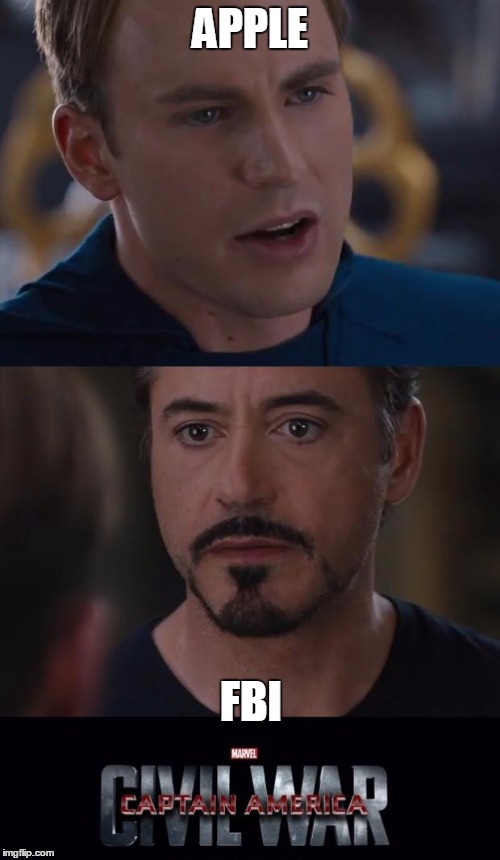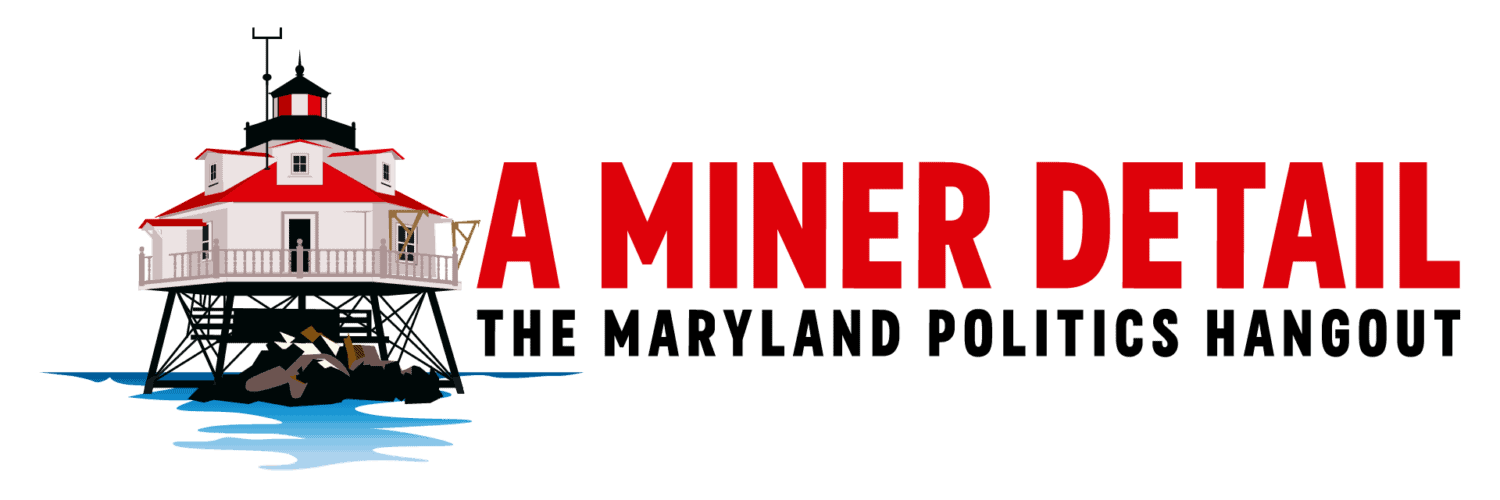By Eric Beasley

During the 6th District debate, some candidates were asked an extremely complicated question, and all were expected to answer in 30 seconds or less. The issue, one which I am personally following very closely, is the ongoing debate about Apple v. The FBI.
I have some strong opinions about this case as you might have seen here. This will be one of the few issues that I vote on, along with “Will you send me to Damascus/Tehran?” and “Will you stop the 4th branch of Government (bureaucracy) from ruining my life?”
Two of the candidates were not even given a chance to answer. As well, I feel like such a complicated issue warrants more than 30 seconds to answer. I e-mailed each CD6 campaign on Monday. Below are a combination of their responses at the debate and via e-mail. I will also update this article if any new responses come through:
Terry Baker – At the debate, he expressed concern that whatever the United States forces Apple to do, other countries like China will force Apple to do as well. Via e-mail, Mr. Baker expanded his position:
The question before us today is; does the Lead Law Enforcement Agency in the United States (The FBI) a Federal Court, or the United States Congress have, or should have, the ability to order a public or private company to give up its trade secrets, or create a backdoor to its products’ security encryption for “national security”? My answer is no for many reasons.First; Apple is not owned by the government and the government should not have the right to force any company to do anything, especially create something that doesn’t exist without its consent. The Constitution is clear about this and gives people protection against a tyrannical government.Second; Apple created a product that by its very nature and design, was encrypted and safe from hacking, on any level. Now the FBI wants Apple to create a backdoor access to its own product’s encryption. If Apple were to do this, and give the FBI access to it for this application, what’s stopping that information from being hacked by foreign governments or entities wishing to do the same thing? The US government has shown time and time again that it is incapable of keeping sensitive secrets; look no further than Hillary Clinton and Edward Snowden.Third; doesn’t the government already have the information they are seeking somehow anyway? If they’re looking for co-conspirators to the radical Islamic terrorists from San Bernadino, wouldn’t they already know who they called, and how long they talked for, and all pertinent information? Wouldn’t that be enough info for them to discover if they had help?If Apple willingly agreed to help the FBI, then this wouldn’t be an issue. But in my opinion the government should not be able to force people or private companies to create products, loopholes, or even backdoors to their own products for the government use without their consent.On a closing note, this case clearly illustrates how important the private sector is for the United States. It is the economic driver for growth and innovation, and shows that the government is not as powerful as its citizens are, which is the very premise our Founding Fathers wrote into the Constitution.
Commentary: Seriously, wow! I’ll be honest, I was not expecting such a strong stance in support of Apple and individual privacy. If digital privacy is your issue, Terry Baker is your guy.
Dr. Scott Cheng – At the debate, he seemed to support the FBI in this endeavor. Via e-mail, I reached out and asked for a statement:
I support balance between privacy and national security. America security and American safety are top priority. We have to take care of Americans first. ISIS and terrorists are biggest threats to our population. We must destroy ISIS and terrorists. To destroy ISIS and terrorists, we have to promote our national defense, increase intelligence services capability and promote international cooperation. Freedom can not survive without national security. We have to offer our intelligence services the legal mechanisms to do their job. ISIS and terrorists are like cancer cells. When doctors treat cancers some treatment can significantly kill cancer cells but has side-effect. Before doctors start to do this treatment they tell patients the efficiency and side-effect. In this case, it is rare that patients refuse this treatment. On this particular case, I support intelligence services to get necessary information through legal process. The intelligence services has obligation to keep confidentiality on this technology.
Commentary: I do not trust intelligence agencies. No individual should have that much power to spy on American citizens. There is a proven record of such power being used for personal gain, such as the LoveINT Chronicles at the NSA.
Robin Ficker – At the debate, he ranted about jobs and using his position as a Congressman to bully an American CEO to relocate jobs to Western Maryland. Since Mr. Ficker does not have a campaign e-mail or website, I was unable to reach out for further comment.
Commentary: We call this crony capitalism, and it has brought us failed government programs like the F35 and Hipster Parties.
Amie Hoeber – At the debate, she seemed to side with Apple. Via e-mail, she sent the following:
As a candidate for Congress in Maryland’s Sixth Congressional District and as an expert in national security, one of my greatest concerns, and the focus of my candidacy, is restoring our country’s standing in the world, rebuilding our military, and revitalizing our economy.
However, providing for the common defense is not my only focus – I am intensely concerned about the ever-increasing intrusion of the federal government in our lives, and I strongly believe in our right to considerable individual privacy.
In the current Apple vs. Federal Government controversy, my two concerns are at least partially in conflict. I am truly torn on this, and like many people, see both sides of this argument. It’s not a simple issue. There are numerous facets:
- On the one hand, to keep us safe, the government does need to obtain data about terrorists in order to provide adequate defenses against additional terrorist attacks.
- On the other hand, expansion of government access to personal data too often diminishes our privacy and possibly threatens our 5th Amendment rights as well as the 1st Amendment rights as claimed by Apple.
- However, if the courts decide that Apple has to provide a technological mechanism for hacking into anyone’s locked iPhones (according to the press there may be iPhones in the government’s possession beyond the one used in San Bernardino that are not currently accessible), then all iPhone stored data is or can be made accessible.
- And further, do we really want the government to be so powerful that it can force a commercial company to abrogate the secure technology in its products?
- Finally, the government has on several occasions failed to protect our accumulated personal information.
However, it is important to note that this case is about more than the issue of privacy versus countering terrorism. There are other aspects, ranging from ownership of intellectual property rights to the proper roles of Congress and the courts. On this latter point, Congress has passed legislation that obligates telecom service providers (e.g., Verizon, AT&T, etc.) to assist with phone call data collection. But Congress has not passed similar legislation requiring companies that make the devices (as compared to the service providers) to develop specific technology for the FBI to use in its pursuit of evidence. Apple is making the argument in its case that the courts do not have the right – at least at this point in time, without such Congressional action – to compel a manufacturer to invent a program to go into its existing product and change a integral part of the operating system.
This is clearly a complicated situation that will take some time to sort out. The best discussion I have seen of the complexities is in February 27, 2016, issue of The Economist. While, based on the currently available information, I gingerly come down on the side of Apple, my primary concern is that we carefully assess all the aspects and try to assure that we don’t get unintended consequences.
Commentary: I’ve said before and I will say it again. Laws have consequences. I believe legislators have to look at the second and third order effects of legislation before passage. Ms. Hoeber’s response demonstrates this philosophy.
Editor’s Note: It should be noted that Ms. Hoeber’s husband, Mark Epstein, works for Qualcomm, which supplies hardware for Android phone manufacturers like Samsung and LG. UPDATE: Qualcomm also manufacturers chips for the iPhone, specifically the 4G LTE modem within the iPhone 6.
Frank Howard – Was not given a chance at the debate to answer the question. E-mail response:
Terrorists use a variety of technology platforms to plot attacks and the problem of Apple vs. the U.S. Justice Department is merely a part of what will be a long, difficult process of ensuring the right balance between public safety and privacy. Instead of seeing law enforcement, the court system, and a private company battle this out publicly, I would much prefer the House Homeland Security and Judiciary committees hold joint hearings to develop legislation that provides a legal means to resolve this and other disputes. We have a Constitutional Republic precisely to allow our elected representatives to confront difficult questions of national security and privacy and to pass laws clarifying the role of government in these matters.
Commentary: Mr. Howard makes an important point in his response. There is no current law regarding encryption, just contradictory rulings from the judiciary. If there was ever a time to pass a law, this would be one. As long as that law is rooted in the Constitution.
Christopher Mason – Sides with Apple, but believes that Apple should unlock this one phone if the technology used to unlock it cannot be replicated by the FBI.
Commentary: Once this technology exists, all the FBI has to do is get a warrant through the FISA court (same court used for unconstitutional metadata collection).
David Vogt – Was not given a chance at the debate to answer the question.
Commentary: David get’s a pass for now, I know he’s down in Annapolis, dealing with some of the most God-awful legislation ever. I hope he reaches out so I can update this article.
To be fair in my commentary, I have to accept one important underlying fact about this case. The issue presented is a complicated IT security question which requires many years of experience and knowledge to comprehend. Also, the conservative media has been busy spinning a web of lies, framing this as an “if you do not give up your privacy, the terrorists win” issue.
First off, I’d like to thank all the candidates for responding. Agitators outside of the 6th District have been sabotaging the policy debate here for many months. This is a chance for us to discuss the real issues facing a potential Congress(wo)man.
Given their responses, I feel like all the candidates (except Ficker, screw that guy) do understand the slippery slope of this case. Each one seems to recognize the power being requested by the FBI, the ability to crack encryption at will. They understand the precedent can be replicated across court cases, and the danger that this presents for individual privacy. They all offered response that I could live with representing me in Congress. But there has to be a winner….
On the issue of Apple v. The FBI, congratulations to Terry Baker! Your well-written response and clear understanding of the issue has truly impressed me.
